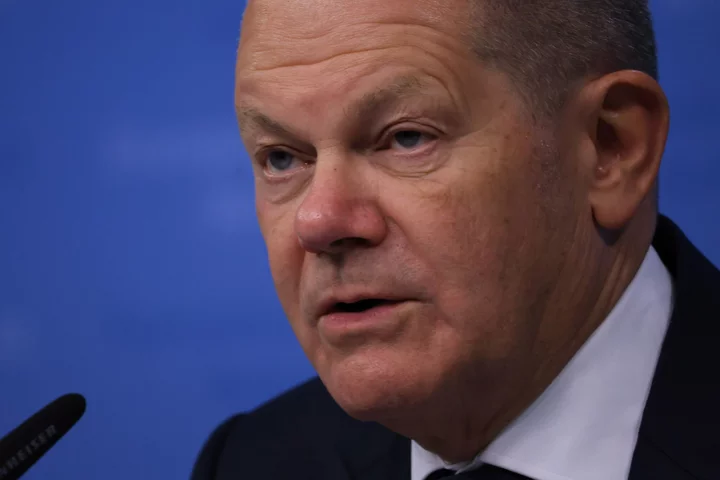ABN Amro Bank NV reported higher than expected first-quarter profit as the Dutch bank boosted lending income and set aside less money for bad loans.
Profit of €523 million ($574 million) in the three months through March compared with analysts’ expectations for profit of €372.3 million. Both net interest income and loan loss provisions beat estimates in a Bloomberg survey.
European lenders are benefiting from being able to charge more for credit after central banks hiked interest rates to combat record inflation, without yet seeing a spike in bad loans. That’s allowed well-capitalized lenders like ABN Amro to boost shareholder payouts by buying back stock despite the economic uncertainty.
“Deposit margins in all client units continued to improve in the higher interest rate environment,” Chief Executive Officer Robert Swaak said in a statement on Wednesday. “Credit quality remains solid.”
Net interest income rose 24% to €1.62 billion as Europe’s exit from negative interest rates allowed ABN Amro and other banks to earn more on deposits, while only passing a fraction of the benefit to clients.
Still, the bank said that “competitive behavior” is driving interest rates on savings higher, with the coupon rising to 0.75% this month from 0.5% at the start of March.
Swaak also said that his firm remains “vigilant about the longer-term effects of persistently high inflation. Lending is becoming more expensive, already affecting the Dutch housing market,” he said.
The bank cited pressure on asset margins, especially in mortgages given “strong competition” in the market, which is seeing declining demand.
ABN Amro grew its corporate loan book in the quarter, making up for shrinkage in mortgages, consumer loans and businesses that it is pulling out of.
A better outlook for the Dutch economy also helped ABN Amro to stash less money aside for bad loans this quarter. Loan loss provisions of €14 million were well below the €143 million estimated in the survey.
In the bank’s base case, elevated inflation and a starting recession in the broader euro area will weaken the outlook for the Dutch economy.
Swaak has overhauled ABN Amro by pulling out of swathes of its investment banking business and is seeking to draw a line under a series of scandals that have damaged the reputation of Dutch banks.
Operating expenses fell 7% from a year earlier, as the lender improved efficiency despite the cost of remediation demanded by Dutch regulators for shortcomings in its processes to combat money laundering.
The bank kept its goal of cutting costs to €5.3 billion this year but said its plan to reduce them to €4.7 billion in 2024 is “challenging due to high inflation and higher investments.”
(Updates with CEO comments in fourth paragraph)









